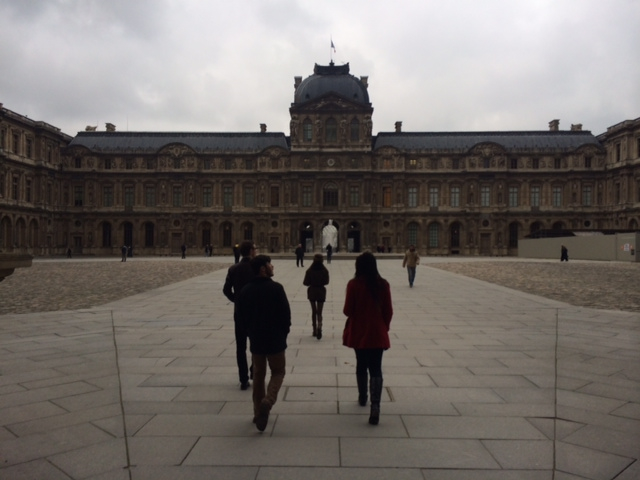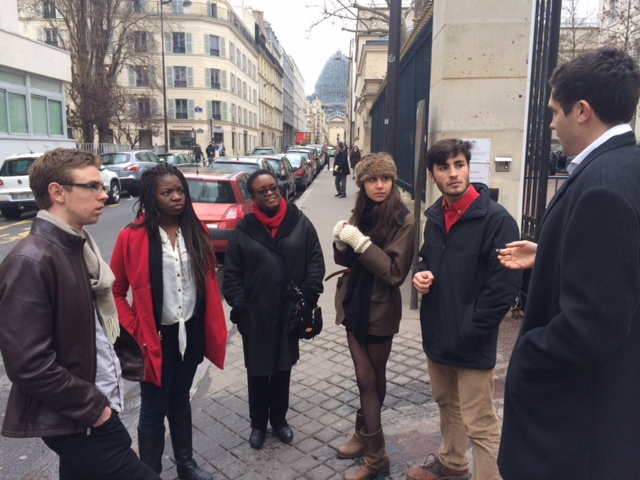On occasion, Princeton affords me an opportunity that seems nothing short of miraculous. People ask me how these experiences fall into my lap, and sometimes I have an explanation, but oftentimes I’ve just two words: Princeton magic.
Over intersession, Princeton magic took me to Paris.
One of my major extracurricular involvements is the French theater troupe on campus, L’Avant-Scène. Every year, the director, Florent Masse, takes all of the second-year students in the troupe on a trip to Paris over intersession for a week-long immersion into French theater. The trip is a seminal experience for members, so anticipation was high.

Paris delivered. Our days were packed, but followed a certain rhythm. I woke up early every day to have time to wander the streets of Paris a bit, usually stopping to grab a croissant and café crème (the French drink everything black, and so cream is a uniquely American perversion) on my way back to the hotel.
We spent the days attending classes at the National Conservatory in Paris. Between classes, we had time to visit a few Parisian landmarks, including a difficult-to-secure visit to l’Élysée, the French presidential palace. We also met several Princeton alums living in Paris. One of those rendezvous included a delicious dinner at the apartment of an alum whose wife teaches French cooking. We spent our evenings sampling the theater scene of Paris, seeing six different productions at various houses, including the venerable Comédie-Française.

The highlight for me was the chance to work with the students at the National Conservatory. Florent teaches a seminar there on acting in English, and so we spent two afternoons working with their students on the plays of Shakespeare and Tennessee Williams.
The language barrier was tricky—the students’ English abilities varied between near-fluent and “I do not really speak English”—so I resorted to a mix of the two to communicate, a franglais where we could meet one another halfway. Slowly, stuttering, we talked our way through the scenes.
One afternoon, I was working on a scene from Macbeth with a bubbly, unassuming girl named Lulu. We’d spent half an hour disentangling Shakespeare’s complex prose, making sure she and her partner understood every word. I wasn’t sure if the giggly girl in front of me could pull off playing a homicidal psychopath, but we talked about Lady Macbeth’s folie—madness—and she got an excited smile before running onstage.
Lights up, and Lulu’s posture changed. She slunk around her Macbeth, mocking and cajoling him, eventually crawling toward him on the floor like a jaguar after its prey. It was riveting. The entire room was silent when the scene ended, and nobody spoke until Lulu cracked a smile.
I’m not entirely sure what to take from that experience, besides that insanity transcends language. If anything, the trip is a testament to the way art transcends language, and I’m glad that our group got to play a small part in that process.






